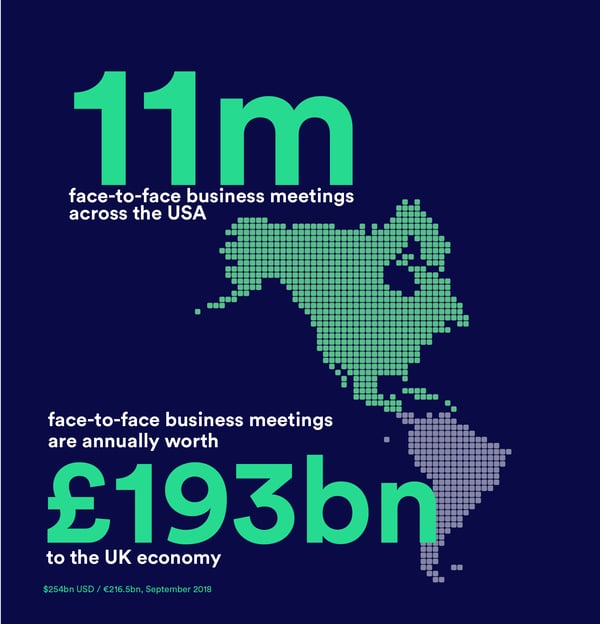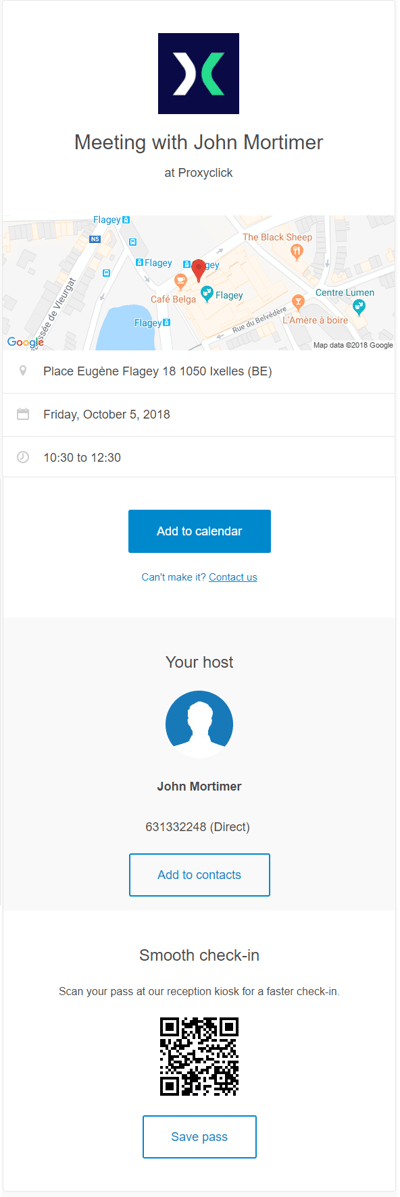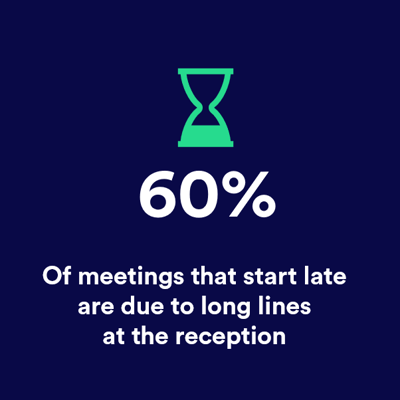If your business is anything like ours, you probably search for efficiencies wherever you can. Over the years, we've seen one area often (and surprisingly) overlooked. It's the one aspect of operations that almost every company struggles with: meetings that start late.
Late meetings may seem insignificant, but let's consider these numbers about meetings:
- Office workers spend an average of 4 hours per week in meetings
- They consider 50% of meeting time to be a complete waste
- "Too many meetings" is considered the #1 time-waster at the office
If you're reading this, then none of the above findings will be very surprising. The bottom line is that there are A LOT of meetings being held in the corporate world.
The little bits of time wasted in meetings compound to a significant amount of inefficiency and lost money for your company.
Read on to learn more about why meeting times matter, reasons why meetings start late, and what you can do about it to start making the most of your time.
Time is precious so meetings should start on time
According to research in our Front Desk Experience Survey in 2018, there are 11 million face-to-face business meetings happen across the US every year. And in the UK, business meetings are valued at £193 billion.

But according to the U.S. Bureau of Labor Statistics, "unnecessary meetings" cost US businesses approximately $37 billion each year. And starting them late will, over time, result in an astounding amount of time being used inefficiently.
In fact, most companies have no clear understanding of how their leaders and employees are spending their collective time. Not surprisingly, that time is often squandered...—Your Scarcest Resource, Harvard Business Review
So what's behind this epidemic of meetings starting late? And how can we fight back?
Let's start listing the ways...
1. You start meetings late, period
The old adage of "it's not you, it's me" works here. As a meeting host, you should be the one setting a good example!
The best first step is not getting a reputation for starting meetings late. Attendees are more likely to be relaxed about arriving on time if the leaders are the people who started late to begin with.
If people dutifully show up punctually only to have the meeting host waltz in 10 minutes late, then no one will take meeting start times seriously.
Likewise, if the meeting leader is always punctual but delays the start of the meeting to account for the usual laggards, then that too will send the wrong message. Don't make late meetings the norm. Leave the stragglers behind. It will be tough at first, but there has to be some degree of tough love to change behaviors.
2. You haven't done enough prep work
Meetings need to be organized in advance.
We're not just talking about the agendas and researching meeting material but also something as simple as providing everything your meeting attendees need ahead of time. You can do this by creating email invites. But crafting each one individually can be a tedious task.
What's great is if you have a visitor management system in place that can help you automate each email invite to your visitors and meeting attendees.

When it comes to writing the invite, follow traditional journalists' advice: “Who, what, when, where, why, and how.”
The meeting invitation should do “advance work” in providing vital info:
- Meeting materials,
- Legal docs for electronic signature,
- Travel directions to your facility,
- Unique access codes or QR codes for entry,
- Your contact info and direct line
Tip: When trying to break bad habits (see item number one above) don’t be shy about reiterating the fact that meetings will—really—start at the agreed-upon time. If need be, we're not against throwing in some ALL CAPS here and there.
3. There are always long lines at reception
If your visitors arrive with plenty of time to spare only to get held up at your front desk because of an inefficient sign-in system, then it does them—and you—more harm than good.
Of the 2,000 business professionals, we surveyed across the US and the UK, a whopping 60% of them blamed long lines at reception for their meetings starting late.

Download full survey results here
More specifically, Joseph Allen, at the University of Nebraska Omaha, surveyed professionals across a variety of industries in the US: sales, retail, media, construction, IT, etc., about the last business meeting they'd had.
He and his team published their findings in "Let's get this meeting started: Meeting lateness and actual meeting outcomes." In summary, their research showed that 40–50% of meetings start late.
Something like Proxyclick’s cloud-based visitor management system can help you streamline your front desk operations and boost the visitor experience. Many of your current processes can be automated so that your reception staff can get back to providing the special human touch.
Your corporate lobby, after all, is an extension of your company's brand and culture.
4. You don’t use the clock strategically
Nowhere is it written that meetings have to start on the hour or half-hour. Nor is it anywhere stipulated that they have to end that way either.
Setting odd or unusual start times can actually help people focus and not just let things slide due to habit. Consider starting a meeting at 8:15 am or ending a meeting at 10:20 am to fit best in everyone’s schedule and encourage attendees to be more conscious of the time.
Unless you went to Hogwarts, then you know it's not possible to end one meeting at the same time you supposed to magically appear at the next. When scheduling a meeting, make sure there is time before and after to account for getting to and from meetings.
If you know there is a weekly staff meeting before yours, for example, give everyone twenty minutes to prepare for their meeting with you. They can then arrive prepared and on time.
Likewise, make sure someone is on clock management (preferably not the person running the meeting). Delegate to this person the duty to cut in periodically and announce the amount of scheduled time left for the session.
This will help maintain focus on the task at hand.
5. Technical difficulties
Nothing matches the joy of sitting in a (dark) room watching someone silhouetted by their desktop screen muttering under their breath about how "PowerPoint was working fine yesterday."
If you’ve brought tech to the meeting and it’s not working, then step away from the tech. And if need be, then wing it with an old-fashioned talk.
Better yet, if you’re bringing tech to the meeting, get there early. Not just five minutes early, but early enough to make sure things are up and running before the meeting’s scheduled start time.
No one wants to watch you wrestle with your gadgets.
In conclusion
These are just a few ideas on how to prevent your meetings from starting late. We get it. Delays happen sometimes. But we've seen time and time again that late meetings lead to less productive meetings.
At Proxyclick, we're in the business of people meetings where the visitor experience matters.
You can book a demo below to see right away the benefits of implementing a digital solution on your path to meeting greatness.
